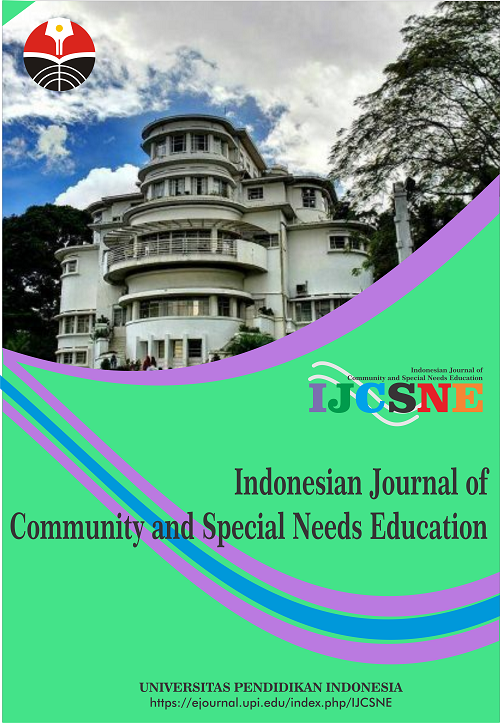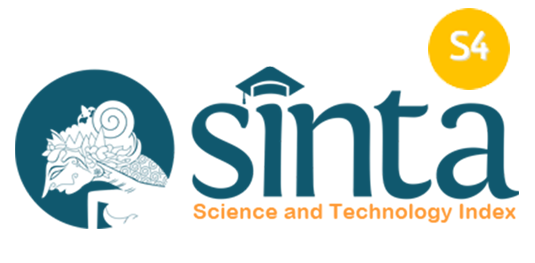Enhancing the Social Development of People with Disabilities Through Project-Based Inclusive Education in Support of the Sustainable Development Goals (SDGs)
Abstract
This study explored how project-based inclusive education can enhance the social development and employability of people with disabilities, aligning with Sustainable Development Goals (SDGs) 4 (Quality Education), 8 (Decent Work and Economic Growth), and 10 (Reduced Inequalities). The research applied historical analysis, systems thinking, and forecasting methods to propose a structured framework based on social systems engineering and participatory pedagogy. The findings revealed that project-based learning facilitated emotional engagement, collaborative skills, and workplace preparedness while reinforcing inclusive principles. The study also introduced the ESG+I model, an expansion of corporate social responsibility that incorporates Inclusion alongside Ecology, Social Responsibility, and Good Governance. Results suggested that this educational approach not only improved learning outcomes but also created pathways for labor market integration, particularly in innovation-driven sectors. Project-based inclusive education was thus presented as a viable strategy for advancing equity, participation, and resilience among people with disabilities within the context of an evolving global economy and technological transformation.
Keywords
Full Text:
PDFReferences
Afanasyev, D. V. (2022). Prospects for the development of higher education for the disabled, taking into account the needs of the labor market. Analytical Bulletin, 5(795), 16–25.
Dougherty, S. M., and Lombardi, A. R. (2016). From vocational education to career readiness: The ongoing work of linking education and the labor market. Review of Research in Education, 40(1), 326-355.
Glushchenko, V. V., and Glushchenko, I. I. (2015). Educationology: Culture, educational concepts, and optimization of the competence of the organization's personnel. Economics and Entrepreneurship, 10(63), 786–793.
Glushchenko, V.V. (2022). Ergo design of mentoring in the national ecosystem of vocational education in the period of the 10th technological order. Indonesian Journal of Educational Research and Technology, 2(3), 223-236.
Glushchenko, V.V. (2023). Ergo design in project management based on the general theory of transport systems in the conditions of the 10th technological order. ASEAN Journal of Science and Engineering, 3(3), 289-300.
Glushchenko, V.V. (2024). Formation of pedagogy of higher project education in the period of the new 18th-century technological order. Indonesian Journal of Teaching in Science, 4(2), 205-258.
Glushchenko, V.V. (2025). Formation of the methodology of the project-activity game in inclusive higher education. Indonesian Journal of Multidiciplinary Research, 5(1), 53-58.
Hudym, I., Abilova, O., Potapiuk, L., Nikolenko, L., & Poliakova, A. (2024). Strategies and best practices for promoting inclusive education to meet diverse learning needs. Conhecimento & Diversidade, 16(42), 270–286.
Kolbina, L., Kasyanenko, O., Sopivnik, I., Karskanova, S., and Chepka, O. (2023). The role of inclusive education in the personal growth of a child with special educational needs. Amazonia Investiga, 12(64), 156–164.
Lekhanova, O. L., and Denisova, O. A. (2024). Technology of designing an individual educational trajectory for students with disabilities. Psychological Science and Education, 29(4), 31–43.
Nahorna, O., Lytovchenko, S., Tripak, M., Serhiienko, T., and Khmil, I. (2023). Providing inclusive learning at higher school. Conhecimento & Diversidade, 15(37), 193–209.
Natsun, L. N. (2019). The increase in the number of disabled population in European countries as an indicator of the effectiveness of their health policies. Economic and Social Changes: Facts,Ttrends, Forecast, 12(4), 200-219.
Starobina, E. M., Ishutina, I. S., Kozhushko, L. A., Chernyakina, T. S., Vladimirova, O. N., Rocheva, Y. S., Raduto, V. I., and Khodakovskiy, M. D. (2023). On expanding the opportunities for disabled people to lead an independent lifestyle and integration into the local community. Journal of Siberian Federal University. Humanities and Social Sciences, 16(12), 2193–2207.
Tursunov, L. E., & Jumanazarova, A. (2023). Actual issues of inclusive education in the sociology of education. Economics and Society, 7(110), 659–662.
Tursunov, L. E., and Jumanazarova, A. (2023). Actual issues of inclusive education in the sociology of education. Economics and Society, 7(110), 659–662.
Volosnikova, L. M., and Fedina, L. V. (2023). Inclusive excellence: A new university model in the 21st century based on universal learning design. Psychological Science and Education, 28(6), 24–32.
Wittmann, H. (2022). Inclusion through a variety of learning approaches in schools in Bavaria (Germany). Correctional Pedagogy: Theory and Practice, 1(91), 17–26.
DOI: https://doi.org/10.17509/ijcsne.v5i1.86171
Refbacks
- There are currently no refbacks.
Copyright (c) 2025 Universitas Pendidikan Indonesia

This work is licensed under a Creative Commons Attribution-ShareAlike 4.0 International License.















